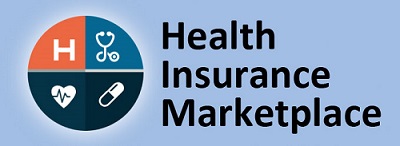So…. What is This Healthcare Marketplace?

So…. What is This Healthcare Marketplace?
October 6, 2021As we approach Oct. 1, the anticipated open enrolment start date for the Federally Facilitated Marketplace in New Jersey, we thought it best to introduce you to some terms and concepts that you will be hearing in the near future. Hopefully, a brief introduction to key words and phrases will help you to navigate through the new healthcare law lingo and to further understand your rights and obligations under the new regulations.
PPACA – The Patient Protection and Affordable Care Act, often referred to as the Affordable Care Act or Obamacare, is legislation enacted in 2010 to reform current healthcare policies and provide coverage for many uninsured Americans. One of the key features of this new legislation is the introduction of an online Marketplace and SHOP for individuals and small businesses to purchase health insurance plans.
Federally Facilitated Marketplace (FFM) – New Jersey has elected to participate with the FFM as opposed to creating its own state partnership plan. You may also hear it referred to as the “exchange.” Individuals will have the opportunity during the open enrollment period, Oct. 1, 2013 – March 31, 2014, to purchase qualified health plans and see if they qualify for tax credits or cost sharing to help with the expense of their plan.
You may enroll in a plan through the marketplace if you are (1) residing in a state in which an exchange was established; (2) not incarcerated, except individuals in custody pending the disposition of charges; and (3) lawful residents. (§1401(a) of ACA; new §36B of the IRC.) Additionally we encourage you to seek assistance through available avenues such as trained “navigators,” your insurance agent, or online resources such as healthcare.gov for more information. By law, individuals are mandated to have coverage. For more information on the liabilities of non-coverage see http://kff.org/infographic/the-requirement-to-buy-coverage-under-the-affordable-care-act/
Tax Credits – Under the ACA if your modified adjusted gross income falls within pre-set guidelines established by the federal government, you may qualify for tax credit assistance that can be used to pay your health care premiums. As a general rule, those making up to 400% of the Federal Poverty Level qualify for some assistance. You will have the opportunity to determine your eligibility when you initially go onto the exchange to apply for a policy. Those individuals who do not purchase on the Marketplace will not be eligible for tax credits. Additionally, those individuals who are covered under a qualified employer sponsored health plan or who are eligible for other coverage such as Medicaid will not be eligible for the credits.
Generally, if an employee is offered affordable minimum essential coverage (MEC) under an employer-sponsored plan, then the individual is ineligible for a premium tax credit and cost-sharing reductions for health insurance purchased through a state exchange. However, an employee may be offered minimum essential coverage by the employer that is either “unaffordable” or that consists of a plan under which the plan’s share of the total allowed cost of benefits is less than 60 percent. In that situation, the employee is eligible for a premium tax credit and cost-sharing reductions if the employee declines to enroll in the coverage and purchases coverage through an exchange.
Qualified Health Plans- There will be several plans for individuals to choose from on the marketplace. Each must meet minimum coverage guidelines called essential health benefits. Different levels of coverage, called “generosity levels,” will allow consumers to select a plan that meets their particular medical needs. You may hear these plans referred to by names such as platinum, gold, silver and bronze. They each represent a different actuarial value and as the name implies, the more precious the “metal” the richer the benefits within the plan. Tax credits will be based upon the silver level plan.
Essential Health Benefits- Ten benefits are now required to be included in qualified health plans beginning January 2014. These are minimum coverage requirements are designed to create comprehensive coverage in policies. As per the ACA they include: outpatient services, emergency service, hospitalization, maternity and newborn care, mental health and substance abuse disorder services, including behavioral health treatment, prescription drugs, rehabilitative and rehabilitative services and devices, laboratory services, preventive and wellness services and chronic disease management, and Pediatric services, including oral and vision care.
SHOP – Small Group Option Program. The SHOP is the Marketplace for small businesses of less than 50 employees. It will provide a place to purchase group coverage. The SHOP will have one plan in place for 2014, with a more extensive list of plans for 2015. Many carriers will also be offering qualified health plan packages on their individual websites coming soon. Tax credits are also available to employers who meet eligibility criteria and purchase insurance through the SHOP.
For more information on the subject you can visit the following helpful websites: http://www.horizonblue.com/about-us/health-care-reform.
Irene Card and Betsy Chandler are both licensed insurance professionals with MIC Insurance Services, a health insurance services company. If you have questions relative to this column or other related topics , we invite you to call us at (973)-492-2828.
Courtesy:cnbc.com






